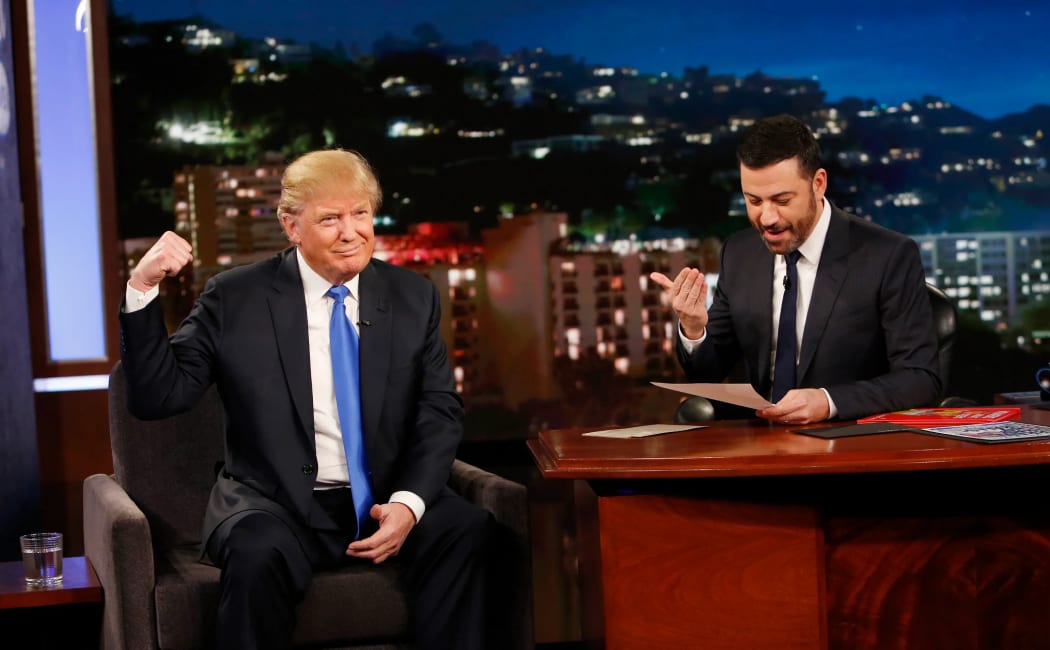Why Donald Trump is Obsessed with Jimmy Kimmel and US Late-Night TV

The Clash Between Donald Trump and Late-Night Comedy
Late-night TV has always been America’s stage for humor, satire, and cultural commentary. But today, Donald Trump’s feud with Jimmy Kimmel has thrown the entire tradition of political comedy into the spotlight. Unlike past presidents who accepted late-night jokes as part of public life, Trump has waged a very public battle against hosts like Kimmel, Stephen Colbert, and Jimmy Fallon. The question remains: why is Trump so obsessed with late-night TV?
The Historic Role of Late-Night TV in Politics
Since its launch in the 1950s with NBC’s Tonight Show, late-night television has been a cultural force. Comedians such as Johnny Carson turned political blunders into punchlines, shaping how Americans understood their leaders. Presidents from John F. Kennedy to Richard Nixon and Ronald Reagan appeared on these shows, knowing that humor could humanize them in front of millions of viewers.
Carson’s monologues in the 1970s famously highlighted Nixon’s Watergate scandal, influencing public opinion in ways the news alone could not. By the 1990s, appearing on shows like The Arsenio Hall Show or David Letterman’s Late Show became essential for candidates seeking younger, more diverse audiences. Bill Clinton’s saxophone performance on Arsenio Hall is still remembered as a defining cultural moment that boosted his relatability.
How Trump Became a Late-Night Target
Unlike his predecessors, Donald Trump had already been a household name thanks to The Apprentice and decades of tabloid coverage. Late-night hosts often joked about his business failures, personal scandals, and reality TV persona long before he entered politics. When Trump launched his presidential campaign, he was already a character late-night comedians loved to mock.
His 2016 appearance on The Tonight Show with Jimmy Fallon—where Fallon mussed his hair—sparked controversy, with critics accusing Fallon of “humanizing” Trump. That moment marked a turning point. Trump, once eager to be in on the joke, shifted into becoming late-night TV’s harshest critic.
Trump vs. Jimmy Kimmel: A Personal Feud
Jimmy Kimmel Live! has long been critical of Trump and his political movement. After Trump canceled an appearance in 2015, Kimmel frequently targeted him in monologues, focusing on policies, rhetoric, and scandals. Reports suggest that during his presidency, Trump’s administration pressured ABC and Disney to silence Kimmel. Instead of backing down, Kimmel doubled down with sharper jokes—even during high-profile events like the Oscars.
Things escalated in 2025 when ABC suspended Kimmel after controversial remarks, sparking protests outside Hollywood studios. Trump celebrated the suspension, demanding stronger action against other hosts, while critics accused media companies of bowing to political pressure and threatening freedom of speech.
The Corporate Pressure on Late-Night TV
The Trump-Kimmel clash isn’t just about politics—it’s also about money and media control. CBS’s abrupt cancellation of The Late Show with Stephen Colbert was officially described as a financial decision, but many saw it as a move to appease Trump critics while the network pursued a billion-dollar merger. Conservative-leaning conglomerates like Nexstar Media are also reshaping the television landscape, raising concerns about monopoly power and censorship.
Why This Battle Matters
Late-night TV is more than just comedy—it’s a cultural mirror. For decades, comedians have been able to speak truth to power with satire. Books like Strange Bedfellows have documented how late-night humor once worked hand-in-hand with journalism to hold leaders accountable. But in today’s fractured media landscape, with shrinking profits and polarized audiences, comedians face new risks when mocking Trump and his allies.
Ironically, while Trump calls late-night shows “an arm of the Democratic Party,” his attacks have only highlighted their importance as one of the few remaining spaces for political critique. Even when censored or pressured, hosts like Fallon, Stewart, and Colbert use satire as resistance, reminding Americans that laughter has always been a form of protest.
Conclusion
From Kennedy’s charm to Clinton’s saxophone, US presidents have long played along with the humor of late-night TV. But Donald Trump’s combative approach marks a dramatic break from tradition. His obsession with Jimmy Kimmel and late-night comedians reveals not just a personal vendetta but a broader struggle over media, politics, and freedom of expression in America. As protests grow and networks face pressure, the future of late-night TV remains uncertain—but its role as a political lens has never been clearer.
